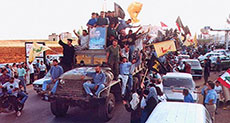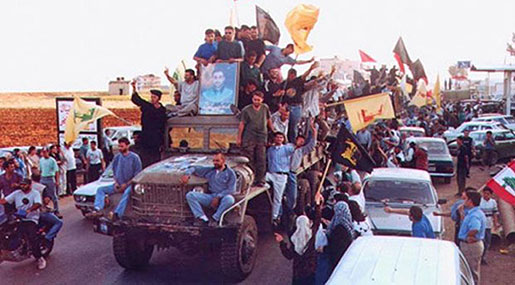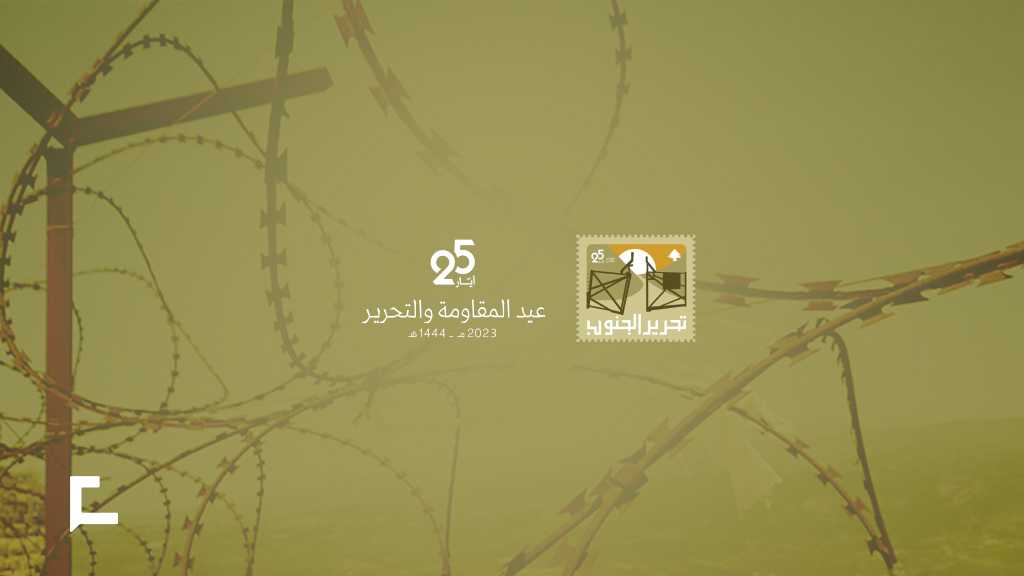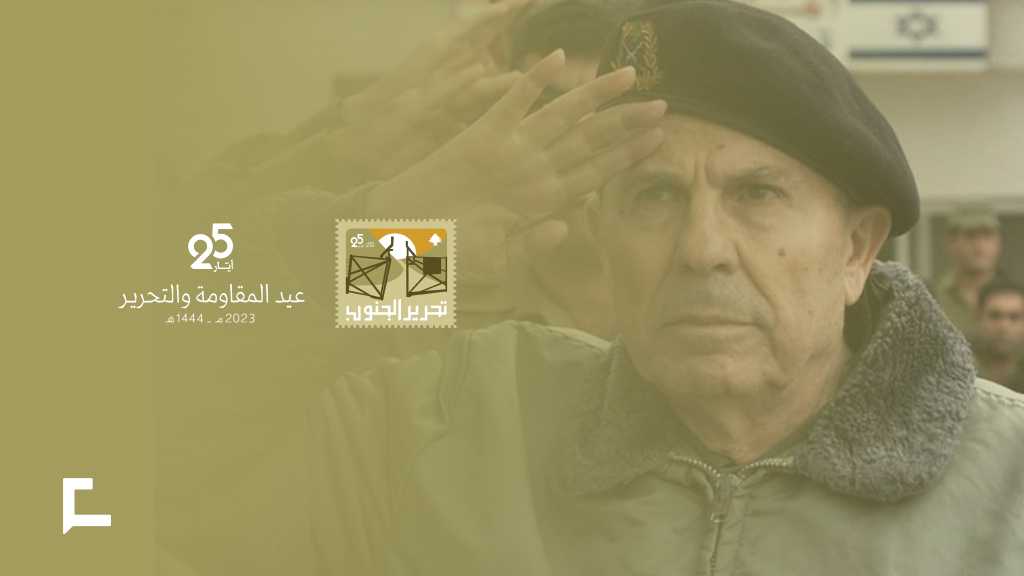
Tunisian Politicians: Only Those Who Resisted the Occupation Know the Importance of May Victory

Rawaa Qassim
The May 2000 victory, during which the Lebanese resistance was able to free south Lebanon and defeat the Zionist enemy, had a significant impact on Tunisia, where its people have gotten accustomed to supporting liberation forces in the world.

Tunisia welcomed FLN fighters that were fighting French colonialism starting from Tunisian territory, and the PLO and its fighters after the "Israeli" invasion of Lebanon in 1982. And according to the journal of the South African leader Nelson Mandela, Tunisia supported him in his struggle against the apartheid regime while the late leader Habib Bourguiba always provided him with financial and political support and even trained fighters.
That is why the Tunisians identified with the liberation of southern Lebanon with some considering it at the time the recovering of the nation's dignity waiting to complete the liberation of the Shebaa Farms and the hills of Kfarshuba. In addition, Lebanon has a special place in the hearts of the Tunisians because it is the cradle of their ancestors, the Carthaginians, who came from Tyre as well as other Phoenician civilizations. And it was perfectly natural for the Tunisians to associate with what was happening in the country of Cedars while longing for their roots.
The New Balance
In this context, the leader of the National Destourian Initiative party and former MP in the Tunisian parliament Hisham al-Hajji said in his interview with Al-Ahed Website that the liberation of the Israeli occupied Lebanese territories by the Lebanese resistance in May 2000 brought back to the Tunisians a sense of pride and dignity. Al-Hajji goes on to say that the liberation has restored the self-confidence we have lost as a result of repeated Arab defeats in the wars against the Zionist entity, which normally ends, either with defeats, or with the victories emptied of its contents through Western pressure exerted on Arab politicians similar to what happened in the October 1973 war.
This victory produced a new balance for the resistance in the region. It is now possible to talk about a "balance of terror" that will deter the Zionist entity, which prior to this date believed it could invade Lebanon whenever and however supported by Western powers. At some stage people have forgotten that Lebanon has a rich history, ancient civilizations, cultural and sectarian diversity, and educated and creative people. Hizbullah's victory confirmed that Lebanon is always great with its valiant resistance that achieved what the mightiest Arab armies failed to.
He adds: "The Tunisians have resisted French colonialism for decades and paid with the blood of their sons, and after the independence they continued their resistance when France wanted to keep the city of Bizerte north of the country. They fought the Jalaa Battle led by the late Habib Bourguiba and liberated their city following great sacrifices; sacrifices that made the fate of the Tunisian city of Bizerte different from the fates of the Moroccan cities of Ceuta and Melilla which are still subject to Spanish colonialism.
That is why Tunisians fully realize the importance of the May 2000 victory and the importance of retrieving the occupied territories. That is why Hizbullah enjoys wide popularity in Tunisia and it has increased and strengthened after the party retrieved the remains of Tunisians who have died in defense of Palestine in one of the successful prisoners exchange operations with the Zionist entity."
The former Tunisian MP concludes: "I congratulate the resistance and all the Lebanese people on the anniversary of the May 2000 victory and I assure them that the Tunisian people will always support the Lebanese resistance. I allow myself to speak on behalf of the majority of the Tunisian people because I am one of them and I know them very well and I assure that what brings the Tunisians together with their resistance in Lebanon is greater and wont be shaken by some smearing campaigns by this Arab state or that, or this regional organization or that."
Abolishing Zionist hegemony
For his part, political activist belonging to the National Constitutional party Ayman Badr al-Din said that the May 2000 victory was a positive turning point in favor of the Arab nation. Through this great victory, we were able to bring down the Zionist hegemony over the region and inflict a military defeat on the "Israeli" army which is invincible in the enemy's eyes, and so we have established a deterrent force in the face of the Zionists that changed the balances and equations ... he adds: "through the May 2000 victory, we were able to liberate southern Lebanon from the Zionist occupation and its agents by the force of arms, and thanks to the brave resistance and without gratitude from anyone..." The Tunisian political activist considers that this victory gave the Lebanese Hizbullah a large Arab popularity across the Arab and Muslim world. The party has gained wide popularity in Lebanon and abroad and this popularity was boosted after the victory of the July 2006 war, during which the party confirmed its readiness and ability to defend Lebanon.
Perhaps what helped the Lebanese resistance achieve these victories, according to Badr Al-Din, is that this resistance is responsible, disciplined, and reasonable in its dealings. What is more important is that Hizbullah did not try to take advantage of this great victory to earn personal gain or gains exceeding the service of the resistance. This made it respected at home and abroad and gained it the confidence of many in the political spectrum.
He concludes: "It is natural for us in Tunisia to relate to Hizbullah's May 200 victory because we are people who resisted colonialism and freed our country. My father carried arms against the French colonialism and after the independence. The late leader Habib Bourguiba bequeathed us with love for the country. And victory for resistance movements and supporting them has become self-evident to us."
Source: al-Ahed News, Translated and Edited by website team



